New Patients Are Welcome!
Emergency Dental Care in Carstairs, Alberta
- Accept Most Commercial Dental Insurance!
- Direct Billing To Your Insurance
- No Dental Insurance! No Problem!
- Get FREE Consultations
- We Are Accepting New Patient
- Emergency & Urgent Dental Patients Appointment Available
- We Follow AB Fee Guide
Book Your Appointment
Emergency Dentistry at Carstairs Dental
Dental emergencies can be more serious than you think them to be. They are potentially life-threatening and also demand immediate professional attention. You must be aware of the fact that emergencies never happen after letting you know. The sheer unpredictability of such situations is what makes them difficult to handle. Treatment for dental emergencies includes stopping the bleeding of the tissues, reducing tremendous pain, preventing any further infection, etc.
Book your dental appointment with the best emergency dental clinic in Carstairs, Alberta.
You should never ignore issues involving your teeth. Whether it’s a small toothache or a little gum bleeding, even a small issue can lead to a bigger problem later on.
What Is Considered a Dental Emergency?
Any dental issue that requires urgent care in order to stop bleeding, lessen excruciating pain, or save a tooth is generally seen as an emergency. This is also true for serious infections that pose a risk to life.
Common Dental Emergency

Dental Pain
Any kind of Dental pain is a dental emergency. If the pain is severe and especially steady and focal, you must reach out to your Dentist to get it checked.

Broken Tooth
Any tooth that is broken or cracked, even if it is still in your mouth, is a dental emergency. If left untreated, a broken tooth can lead to infection or even tooth loss.
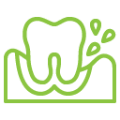
Infected Gums
Signs of infected gums may include toothache, swelling, and inflammation in your mouth. It can lead to periodontitis and, if more serious, can cause tooth loss.

Extreme Sensitivity to Hot or Cold
The pulp at the center of your tooth can get infected and produce a great deal of sensitivity and discomfort if both the dentin and the enamel are significantly damaged.

Cavity
If unattended, the cavity can deepen until it exposes the pulp chamber or fractures the tooth. Both situations are categorized as dental emergencies.

Abscess Tooth
A dental abscess is an infection-related pus collection in the gums or teeth. A dentist must treat it right away. An abscess in the mouth won't disappear on its own.

Dislodged / Displaced Teeth
A dislodged or misplaced tooth is a major dental emergency that needs immediate attention. You should seek dental care within 12 to 24 hours.
Types of Dental Emergencies
In the guidelines below, we’ve detailed several circumstances that are deemed dental emergencies. Reading through these will assist you in recognizing potential dental clinic visits.
- Uncontrolled bleeding from the gum or teeth.
- Dental trauma involving the facial bones.
- Unbearable pain caused due to pulpal inflammation.
- Pain caused due to pericoronitis of the third molar.
- A knocked-out tooth.
- Inflammation of the bones after surgery.
- Localized bacterial infection or abscess leading to swelling or pain.
- Fracture in the tooth causing trauma in the soft tissue.
- Dental trauma accompanied by luxation or avulsion.
- Damaged crown leading to discomfort.
- Injuries caused due to sports and other activities.
- Chipped or broken teeth.
- Broken teeth braces.
- Pain due to an eruption of wisdom teeth.
Emergency Dentist Near You
Carstairs Dental is a leading dental clinic in Carstairs, Alberta. We pride ourselves on being available for dental emergencies. For patients who are suffering from severe pain inflicted by an abrasion or an infection, we can provide emergency teeth whitening.
Whether you’ve encountered an accident that has damaged your teeth or you’re having issues with gum swelling, you can get the care you need from the team of dentists at our clinic in Carstairs, Alberta. Call us to book your appointment. You can consult us anytime.
After Hours
Weekends
Without Dental Insurance
Dentist in Carstairs Can Help You in Emergency
The first thing you can expect during a dental emergency is that your dentist will immediately ask you about the accident or infection that has led to the issue. Your dentist will then assess the situation and take x-rays, which are essential in these situations. After collecting the necessary information from you and examining your x-rays, he/she will recommend an appropriate treatment plan as well as oral medication.
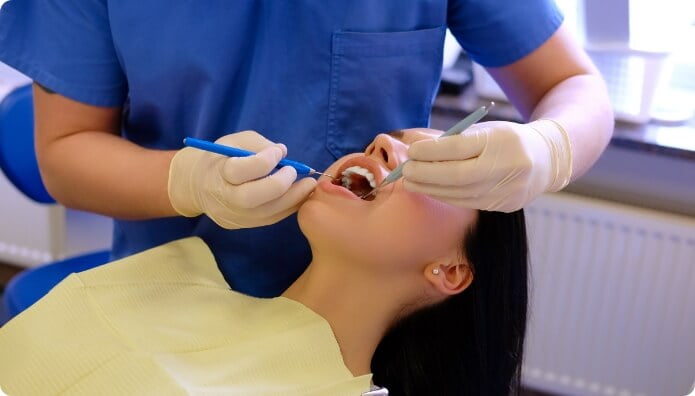
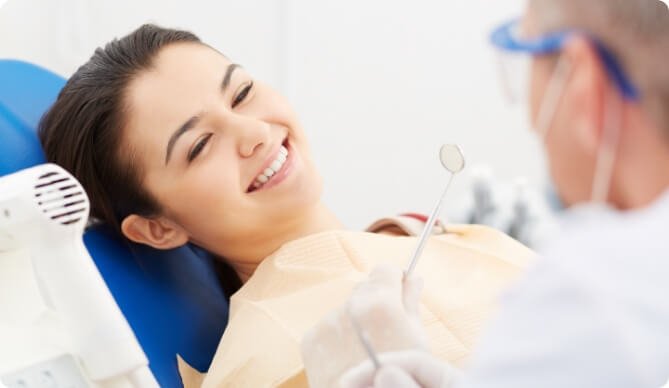
Dental Emergency Recovery Time
The recovery time will be different for each patient. It depends on the severity of the issue and the treatment plan. After a dental emergency, some may take up to 3 months to fully recover.
Tips for Preventing a Dental Emergency
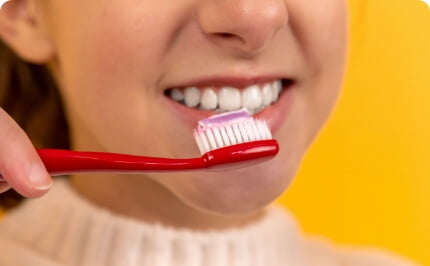
Practice Daily Dental Hygiene
Start a dental hygiene routine that includes brushing and flossing your teeth twice a day. By taking the time to brush your teeth twice a day, you can cut down on the amount of plaque buildup on your teeth.

See Your Dentist on a Regular Basis
You can schedule an appointment with your dentist at least once every six months so he or she can perform an inspection and any necessary dental treatment.

Brushing and Flossing Regularly
By brushing and flossing regularly, you can prevent gum disease, tooth decay, and other dental emergencies.
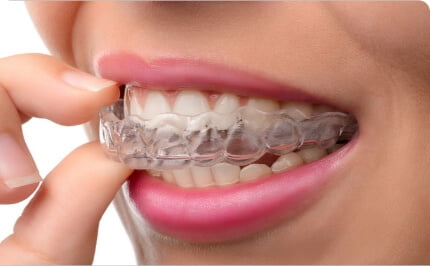
Mouthguards (Especially if You Participate in Sports)
You may want to consider wearing a mouthguard while participating in certain sports to prevent damaging your teeth.

Watch Your Meals
You can lower your chances of getting a dental emergency if you start making healthy choices about what you eat. Try to avoid foods that are high in sugar, fat, and sodium.

Sealants
You can also help prevent tooth decay by getting sealants for your teeth. Seals are coatings that are applied to the teeth to prevent tooth decay.

Vitamins
Ask your dentist about vitamin supplements. By getting a specific daily dosage of vitamins and minerals, you can make sure that you're getting the right amount of nutrients in your body.
Before and After Images
Broken Tooth Before/After

Infected Gums Before/After
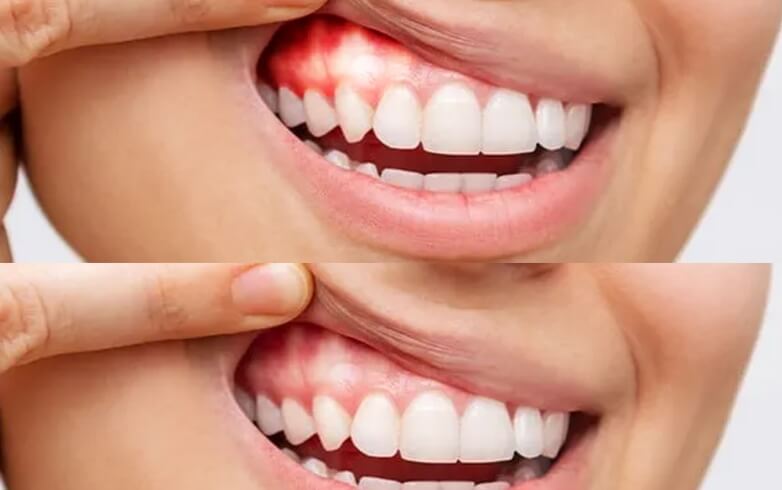
Why You Should Choose Carstairs Dental Clinic for Dental Emergencies
Carstairs Dental, AB, is here to provide you with the top emergency dental care in the area. Our Carstairs Dental team enjoys imparting its dental expertise to help our patients achieve optimal oral health. The dental team at our facility is well-equipped and happy to assist patients of all ages in maintaining beautiful, healthy smiles.
Carstairs Dental, AB, is here to provide you with the top emergency dental care in the area. Our Carstairs Dental team enjoys imparting its dental expertise to help our patients achieve optimal oral health. The dental team at our facility is well-equipped and happy to assist patients of all ages in maintaining beautiful, healthy smiles.
We offer

FREE Consultations
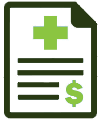
Billing Your Insurance Directly

Weekend and Late Hours Are Available
Schedule an appointment today!
For emergency dentistry in Carstairs, Alberta
Frequently Asked Questions
About Emergency Dentistry
If your tooth is broken, make sure you don’t brush it, and make an appointment to see your dentist as soon as possible. Your Carstairs dentist will discuss with you the best method of repairing the break, which could be one or a combination of fillings, crowns, and root canal treatments.
Any dental issue that requires quick attention in order to stop bleeding, lessen excruciating pain, or save a tooth is generally regarded as an emergency. This also holds true for serious infections that pose a risk to life.
It’s best to use floss, a toothpick, or a water irrigator to carefully remove anything lodged between your teeth. By employing any of these products, you’ll not only have more control but also lessen your chance of significantly harming your teeth and gums.
There are several at-home treatments for toothaches or pain, but consult your dentist before using them. You can use the following for instant relief:
- Clove oil
- Willow bark
- Cold compress
- Saltwater rinse
- Hydrogen Peroxide rinse
- Peppermint tea bag or oil
- Garlic
- Topical pain relievers
While losing a tooth is never nice, the good news is that, as long as the ligament is still living, the majority of teeth can be replaced. Visit your dentist as soon as possible. In the meantime, it is crucial to:
- Handle the tooth gently
- Store the tooth safely and bring it with you
A lost filling that isn’t replaced within a few days may harm the unprotected tooth. The void can become clogged with bacteria and food particles, accelerating deterioration. The dentin, the second layer of the tooth beneath the tough outer enamel, may also be seen if a filling is absent.
You don’t have to worry about locating and cleaning the tooth. In order to stop the bleeding and lessen the swelling, have your child rinse his or her mouth with water first. Then, use a clean washcloth or piece of gauze that has been soaked in cold water as a compress.
The degree of damage determines the course of treatment for a broken jaw/jaw fracture. Simple fractures might mend by themselves. A soft diet or liquid diet will be necessary while your jawbone heals.
Surgery is necessary for more severe fractures. Your healthcare professional could:
- Wire the upper and lower jawbones together to hold the broken bones in place for a few weeks.
- Apply metal plates to the affected area to aid in the healing and fusion of the broken bone.
Your dentist has the ability to put you to sleep during procedures. However, your dentist will start by considering options for conscious sedation–utilizing medicines during a dental procedure. It’s perfect for those who find it difficult to sit still or who experience anxiety during dentist appointments.

